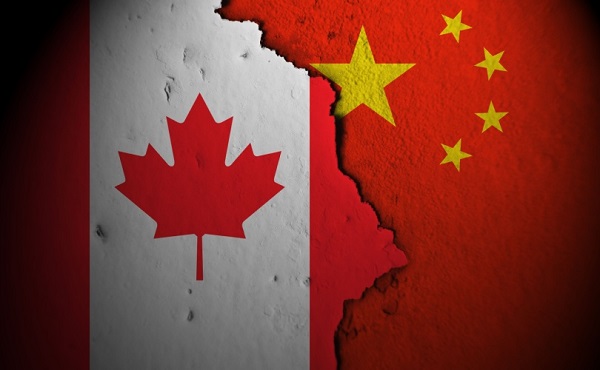Business
Carney must kick-start private sector to strengthen sputtering economy

From the Fraser Institute
Prime Minister Mark Carney talks frequently of making Canada “the strongest economy in the G7.” That promises to be a tall order, which will require—among other things—advancing many more large-scale energy, mining and infrastructure projects in the next one to five years; streamlining Ottawa’s sclerotic project assessment and environmental permitting rules; and responding to recent tax policy changes in the United States, which have left Canada at a significant competitive disadvantage in attracting new business investment.
The challenges confronting Canadian policymakers are daunting. Carney has inherited a sputtering economy crippled by years of weak business investment, zero productivity growth and an increasingly unattractive business climate—and now the new threat of sweeping tariffs, courtesy of our principal trading partner.
During Justin Trudeau’s nine-plus years in power, the two primary motors of economic growth in Canada were an expanding public sector and an immigration-fuelled surge in the population. The first trend saw the federal government and many of the provinces spend and borrow with abandon, producing a near-term economic jolt but also adding to Canada’s mountain of government debt.
The second trend saw Canada post the fastest population growth of any advanced economy from 2016 to 2024, owing to outsized immigration. This also boosted the economy, since every newcomer creates extra demand for goods, services and housing. And many immigrants gain employment, enlarging the country’s workforce. However, Canada’s population growth since 2016 did little to increase prosperity and living standards on a per-person basis.
Now, Canada’s previous engines of economic growth have run out of gas.
While Carney has hinted at even bigger budget deficits than his notably spendthrift predecessor, in reality Canada is about to enter a period of fiscal austerity as governments are compelled—including by bond markets and credit-rating agencies—to rein in spending and tame excessive deficits. It’s hard to imagine that continued increases in the size of government can or will propel a struggling Canadian economy forward in the next few years.
As for population growth, the federal government’s revised immigration plan unveiled last fall aims to sharply reduce inflows of both permanent immigrants and “non-permanent” foreign residents. After a decade of rising immigration, Canada will experience the opposite over the next three years. As a result, the country’s population is poised to stall—and perhaps even slightly decline—after an extended stretch of steady growth. This sudden demographic shift will dampen economic growth, even as the Carney government muses about supercharging Canada’s stagnant economy.
Recent data from Statistics Canada confirms that the effects of Ottawa’s new immigration policy are starting to materialize. The population didn’t grow at all between the fourth quarter of 2024 and the first quarter of this year, reflecting both smaller inflows of new permanent immigrants and a drop in the size of the “non-permanent” resident population, in line with immigration targets announced last year.
With the population no longer increasing and governments under mounting fiscal pressure, the only way to grow the Canadian economy is to kick-start the private sector. That will require a different playbook than the one favoured by the Trudeau government over the last several years. Ottawa should now focus on improving the business environment to encourage companies, entrepreneurs and investors to deploy their capital and talents to build and expand businesses in Canada. Absent that, there’s little chance the prime minister will meet his goal of making Canada the G7’s economic star.
Business
Inquiry discloses Canada providing a reported $2.5 million in aid to Chinese universities

From LifeSiteNews
The Department of Foreign Affairs refused to say how much money went to schools in China after Conservative MP Lianne Root asked for a dollar amount.
Canadian taxpayers are out millions of dollars that went to aid universities in Communist China, records show.
An Inquiry of Ministry, which was brought forth in the House of Commons at the request of Conservative MP Lianne Rood, shows that the Department of Foreign Affairs refused to say how much money was given to schools in China.
“The department concluded that producing and validating a comprehensive response to this question would require a collection of information that is not possible in the time allotted and could lead to disclosure of incomplete and misleading information,” the department said.
As noted by Blacklock’s Reporter, over the past five years, $2.5 billion was allocated in foreign aid to schools outside of Canada, with educational grants totaling $1,116,507, including $806,257 for postsecondary campuses, primarily directed to China.
“The department undertook an extensive preliminary search to determine the amount of information that would fall within the scope of the question and prepare a comprehensive response,” the department wrote in an Inquiry of Ministry tabled in the House of Commons.
Rood, not happy with the information from the report, asked at a recent meeting, “About Canadian funding for education in developing countries, how much was spent?”
Opposition House leader Andrew Scheer told reporters he is of the view that no money should be going to fund schools in “Communist” China.
“I don’t believe Canadian taxpayers should be sending any money to China,” he said.
“We’re talking about a Communist dictatorial government that abuses human rights, quashes freedoms, violates the rights of its citizens, and has a very aggressive foreign policy throughout the region.”
Scheer called upon the Liberal government of Prime Minister Mark Carney to “stand up for itself, stand up for Canadians, stop being bullied and pushed around on the world stage, especially by China.”
During a 2025 federal election campaign debate, Conservative Party leader Pierre Poilievre called out Carney for his ties to Communist China.
As reported by LifeSiteNews, the Foreign Interference Commission concluded that operatives from China may have had a hand in helping to elect a handful of MPs in both the 2019 and 2021 Canadian federal elections. It also determined that China was the primary foreign interference threat to Canada.
As reported by LifeSiteNews, a new exposé by investigative journalist Sam Cooper has claimed there is compelling evidence that Carney and former Prime Minister Justin Trudeau are strongly influenced by an “elite network” of foreign actors, including those with ties to China and the World Economic Forum.
Business
UK Government Dismisses Public Outcry, Pushes Ahead with Controversial Digital ID Plan

Over 2.7 million signatures couldn’t move the needle on a dystopian plan already set in motion.
|
A UK government plan to introduce a nationwide digital identification system is moving ahead, despite a public backlash that saw more than 2.7 million people sign a petition urging its cancellation.
The proposal, first announced by Labour in September, would provide a digital ID to every UK citizen and legal resident aged 16 and above.
Prime Minister Keir Starmer claimed the new system would help strengthen border enforcement and reduce illegal employment, describing the ID, dubbed the “Brit Card,” as a tool to “make it tougher to work illegally in this country, making our borders more secure.”
The public response was overwhelmingly opposed. Warnings about centralized data collection, privacy intrusions, and increased state surveillance flooded public discourse.
Descriptions of the proposal ranged from a “dystopian nightmare” to fears of a gateway to “digital control.”
Not long after Labour’s announcement, a petition was created on the official UK Government and Petitions website.
|
 |
|
It quickly gathered enough signatures to qualify for parliamentary debate, a 100,000-signature benchmark, and within days surged past two million.
Despite reaching over 2.7 million signatures, the government issued a formal response rejecting the petition and restating its commitment to the scheme.
According to the response, published by the Department for Science, Innovation and Technology, the new ID system is part of Labour’s wider aim to modernize public services.
“We will introduce a digital ID within this Parliament to help tackle illegal migration, make accessing government services easier, and enable wider efficiencies. We will consult on details soon,” the government wrote.
Although a formal consultation process is expected in the coming weeks, involving employers, unions, and civil society organizations, the government made it clear that legislation to support the digital ID system is on the way.
Over time, it is expected to serve as a single access point for government services like benefits, tax records, and other official interactions, potentially eliminating the need for physical documents or multiple logins.
The government’s decision to push ahead with a national digital ID comes in the shadow of the recently enacted Online Safety Act, which has already laid the groundwork for sweeping identity checks across the internet.
That law, marketed as a way to protect children from harmful content, gave regulators broad authority to demand age verification for accessing a wide range of online services.
The result is an emerging digital framework where proving who you are, even just to browse or communicate, is becoming a condition of access.
|
-

 Alberta2 days ago
Alberta2 days agoAlberta’s E3 Lithium delivers first battery-grade lithium carbonate
-

 Automotive2 days ago
Automotive2 days agoCanada’s EV subsidies are wracking up billions in losses for taxpayers, and not just in the auto industry
-

 Business2 days ago
Business2 days agoLA skyscrapers for homeless could cost federal taxpayers over $1 billion
-

 Crime1 day ago
Crime1 day agoThe “Strong Borders Act,” Misses the Mark — Only Deep Legal Reforms Will Confront Canada’s Fentanyl Networks
-

 Agriculture20 hours ago
Agriculture20 hours ago“We Made it”: Healthy Ostriches Still Alive in Canada
-

 Business1 day ago
Business1 day agoUK Government Dismisses Public Outcry, Pushes Ahead with Controversial Digital ID Plan
-

 Energy2 days ago
Energy2 days agoNuclear power outperforms renewables every time
-

 Artificial Intelligence2 days ago
Artificial Intelligence2 days agoAI chatbots a child safety risk, parental groups report





